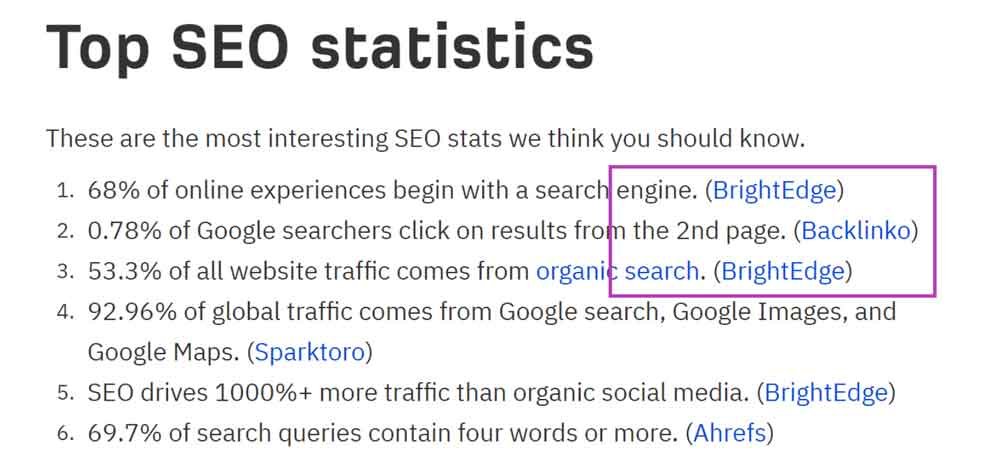SEO, in all its glory and popularity, is mostly associated with building quality content around important keywords to publish on your webpages.
There is more to it than meets the eye, though: SEO is like an iceberg, and most of what goes on at the backend happens beneath the surface. Off-page SEO is something similar – the optimizations that happen away from your webpages for search engine friendliness is called off-page SEO.
Some of the examples of off-page SEO are link building, encouraging page sharing on social media, guest posting and republishing content. To put it simply, the passive way of getting other sources to talk about your content is what off-page SEO is about.
What’s the deal with this, anyway? When other sources talk about or share your content, search engines treat it as a signal of quality and authoritative content on the subject involved. That boosts the ranking of your page on search results. The greater your off-page references are, the higher your chances of better ranking.
Of the various techniques that businesses employ for off-page SEO strategies, backlinking is by far the most effective and popular. Let’s understand how backlink building works wonders for off-page SEO strategies that most SEO services companies employ these days.
Table of Contents
Backlinking Techniques for Off-Page SEO
Backlink can be defined as a link on a webpage that leads to content on your website. When a blog, article or a person’s social media handle links to content on your webpages, the search engine algorithm deems this content as authoritative on the subject and boosts its ranking in search results. This is why businesses prefer the technique of backlinking for off-page SEO. Let’s see how backlinks can be leveraged effectively for off-page SEO.
Becoming a Data Source
What is the one piece of information that gets cited the most? Statistics. According to an Ahrefs study, 91% of the websites don’t attract any organic traffic on Google, because just over 55% of them don’t get any backlinks. See? Here is a backlink again, leading you straight to a statistic on another webpage. This is how it all works.
Getting your webpage linked to by another website is a great way of attracting organic traffic. One way to do that is to load your pages with statistics that are trending, with keywords that people are using to search for them.

Begin crafting content with lists of statistics sourced from credible resources that other publishers wouldn’t be shy to cite on their own blogs. You can begin with publishing industry-specific content and gradually expand into including ancillaries and associated branches as well. The idea is to become a source of information that other bloggers and even businesses would flock to for statistical information that they and their readers can trust. You can even conduct polls/surveys on social media and gather your own results for publishing.
It will take a little time for the internet to discover you as a source of reliable statistics – when that does happen, backlinks will come pouring in.
Building Broken Content
You may have come across quite a few “Error: 404” in your lifetime while browsing the internet. Broken link building cashes in on these dead pages that don’t lead anywhere.
By replacing a broken link with an active one that leads to your website, you are creating an additional stream of organic traffic to your website for no extra effort. With that said, there is a lot of virtual legwork involved to actually search for broken links. Instead, searching for inactive pages using content as a pivot works quicker and is more efficient.

Using online SEO tools (which you can find for free as well), you can search for content related to your industry and niche, and filter the results to show only 404 pages. That way, not only would you have a list of broken links, but also content that is no longer active. Leveraging this resource and data to build more backlinks to your website then becomes simplified.
You can then proceed to building backlinks traditionally and replacing the content on the dead page with the one that you compose – with the original link owner’s consent, of course. Open communication is the key here.
Leveraging Long-Form Content
A study by Backlinko found that longer content was referenced 77% more than the shorter counterparts. That is a lot of weightage placed on long form content with respect to off-page SEO. There is a reason for that: longer content gives better opportunity to deliver more content through the same page as compared to shorter content. Including more statistics and industry-relevant information on the same post increases the odds of getting backlinks to the webpage as compared to shorter blogs.
With that said, Rome wasn’t built in a day. It is a practice that needs to be inculcated; results will follow with time.
Boosting Guest Posting
Exposing your business or brand to a new set of audience can do wonders for off-page SEO and organic traffic. Guest posting gets your brand known in the industry, through the pens of other bloggers. Your brand name may just be an unlinked mention in someone’s comment – but it will still get others to read more about you. With time and patience, you can publish guest posts on blog sites in your industry, subtly including backlinks to your brand website (careful not to overdo it) and creating a network of guest posts with inbound links from different blogs.
This process takes a little longer to bear fruit, but the organic traffic and brand exposure it brings in is well worth the efforts and the wait.
Conclusion
The not-so-well-known brother of on-page SEO, link building, is just as important to groom and hone in order to attract as much quality traffic to your website as possible. While it is important to ensure that search engines “see” your website as a quality resource, it is also necessary for other websites to “tell” search engines that it actually is a good place for authentic information. Utilizing a link building platform can help you achieve this by securing backlinks from reputable websites within your industry.





